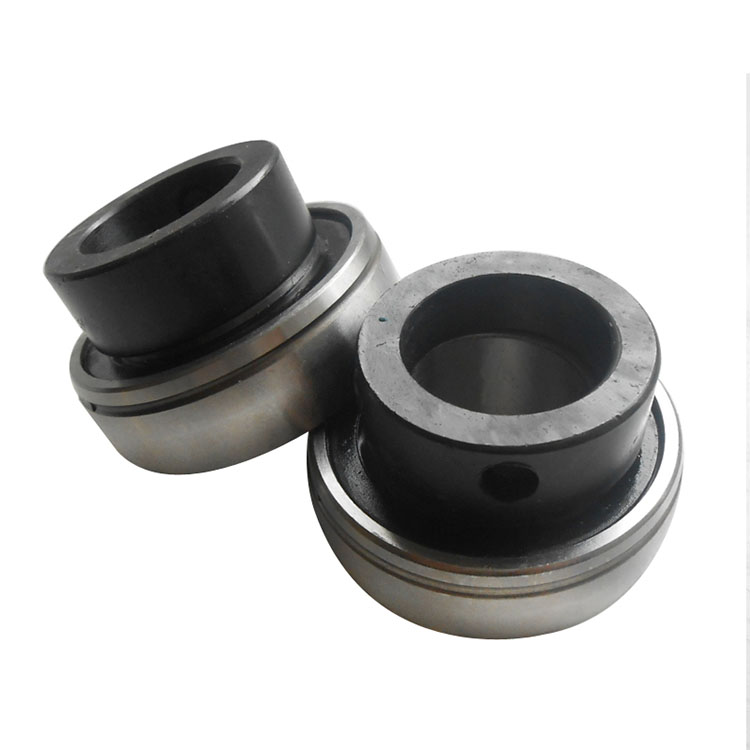Dec . 06, 2024 21:05 Back to list
Innovative Solutions for Enhanced Bearing Performance and Reliability in Mechanical Applications
Understanding Bearing Special A Comprehensive Overview
Bearings are crucial components in various mechanical systems, allowing for smooth movement and reducing friction between moving parts. When we talk about bearing special, we are typically referring to specialized types of bearings that are designed for specific applications or that possess unique characteristics that differentiate them from standard bearings. This article explores the significance, types, applications, and innovations in bearing special technologies.
The Importance of Bearing Special
In the world of engineering and machinery, the choice of bearings plays a vital role in the performance, reliability, and longevity of equipment. Standard bearings may work well for general applications; however, specialized bearings are essential for industries with unique requirements. These specialized components can handle higher loads, operate in extreme temperatures, resist corrosion, and maintain functionality in challenging environments.
For example, in aerospace applications, bearings must operate in extremely high altitudes with minimal lubrication, while automotive industries require bearings that can withstand variations in temperature and harsh conditions. Thus, bearing special embodies the need for tailored solutions that meet specific demands.
Types of Special Bearings
1. High-Temperature Bearings These bearings can function effectively in environments where operational temperatures exceed those manageable by standard bearings. Materials such as ceramics or specially designed steels are often used to withstand high heat without deteriorating.
2. Corrosion-Resistant Bearings In industries such as marine and chemical, resistance to rust and corrosion is crucial. Stainless steel or plastic bearings are utilized in these situations to prolong lifespan and reliability when exposed to aggressive substances.
3. Sealed Bearings To prevent contamination by dust, dirt, or moisture, sealed bearings are designed with protective covers. These are commonly used in applications where debris can compromise performance, such as in construction machinery or outdoor equipment.
4. Magnetic Bearings These innovative bearings utilize magnetic fields to support the rotation of parts without physical contact, reducing friction and allowing for smoother operations. They are often employed in high-speed applications like turbines and advanced industrial machinery.
bearing special

5. Custom Bearings Many manufacturers now offer custom bearing solutions tailored to meet specific application needs, ensuring compatibility and improved performance in unique or specialized environments.
Applications of Bearing Special
The applications of special bearings span a wide range of industries. In the aerospace sector, bearings are used in critical components such as jet engines, where precision and reliability are paramount. The medical industry also relies on specialized bearings in surgical instruments and imaging equipment, where hygiene and sterility are essential.
In the renewable energy sector, wind turbines utilize specially designed bearings that can withstand large loads and harsh weather conditions while ensuring efficient operation for prolonged periods. Additionally, in the manufacturing industry, robotics and automation systems utilize precise bearing solutions to enhance productivity and operational efficiency.
Innovations in Bearing Special
As industries evolve and technology advances, the field of bearing special continues to grow. Innovations such as smart bearings equipped with sensors for predictive maintenance are becoming increasingly popular. These sensors can monitor key parameters such as temperature and vibration, enabling proactive maintenance and reducing the risk of unexpected failures.
Furthermore, the integration of materials science has led to the development of new bearing materials that offer enhanced performance characteristics. Advances in lubrication technology, including self-lubricating bearings and advanced grease formulations, have also played a significant role in increasing the effectiveness of special bearings under various conditions.
Conclusion
In conclusion, bearing special represents a vital segment of the bearing industry that addresses the diverse and demanding needs of various applications. From aerospace to renewable energy, the importance of specialized bearings cannot be overstated. As technology continues to advance, we can expect further innovations that will enhance the performance, reliability, and efficiency of these critical components. Understanding and implementing the right type of bearing special can make a significant difference in the overall functionality of machinery, highlighting the need for continued research and development in this field.
Latest news
-
25MM 2 BOLT UCFLX05-14 Flange bearing unit( oval)
NewsMar.07,2025
-
4 bolt UCF 200 series Pillow block bearings
NewsMar.07,2025
-
25MM 2 BOLT UCFLX05-14 Flange bearing unit( oval)
NewsMar.07,2025
-
UCF216-50 4-Bolt Flange Housing Square Bearing
NewsMar.07,2025
-
25MM 2 BOLT UCFLX05-14 Flange bearing unit( oval)
NewsMar.07,2025
-
spherical roller bearing material exporter
NewsMar.07,2025





